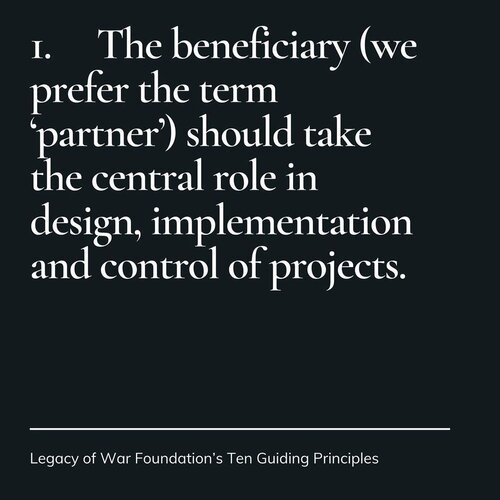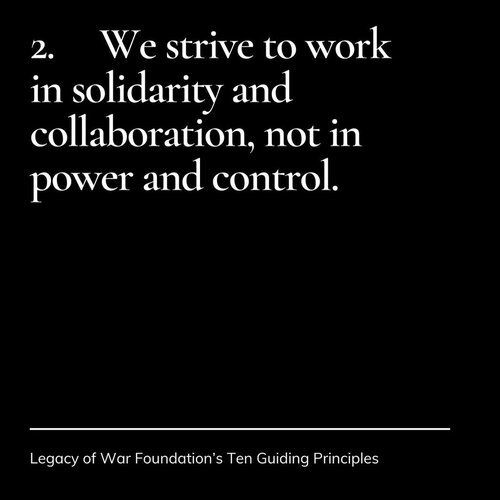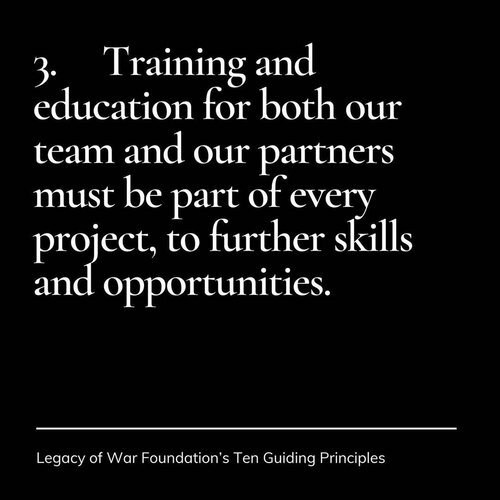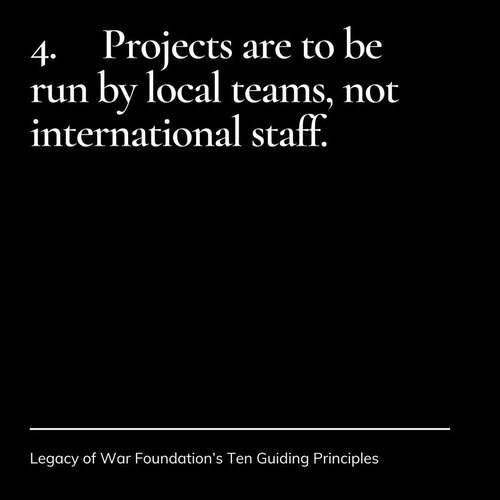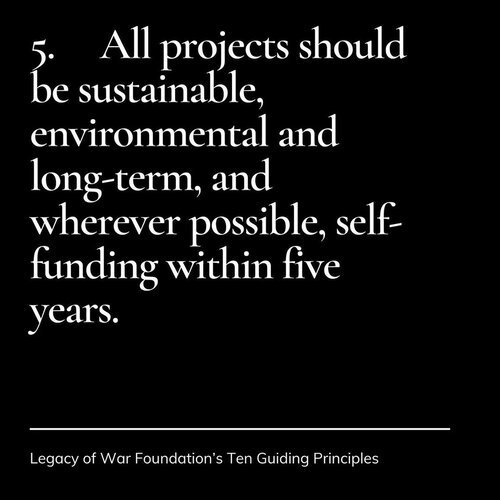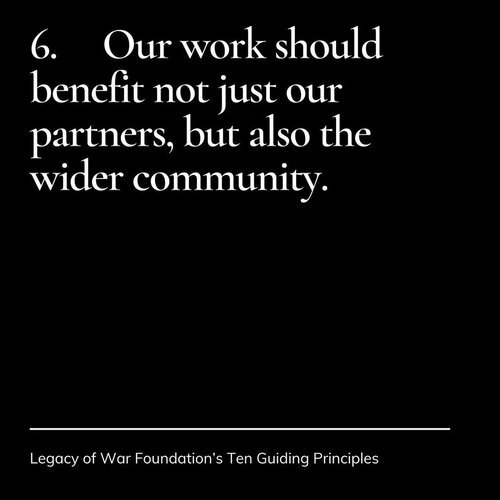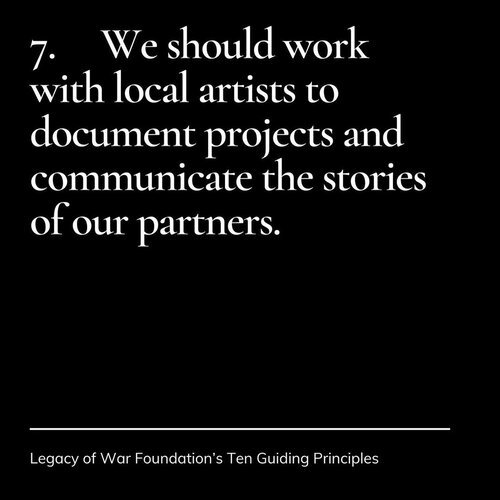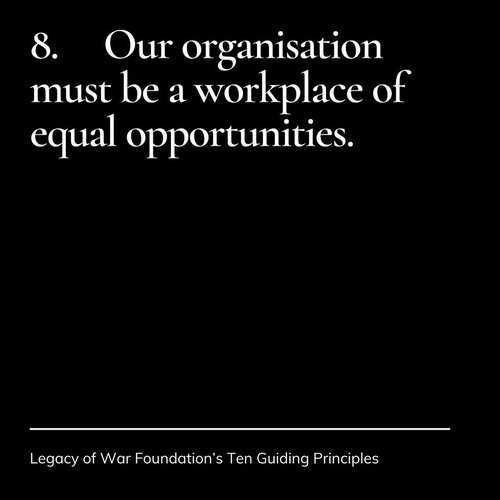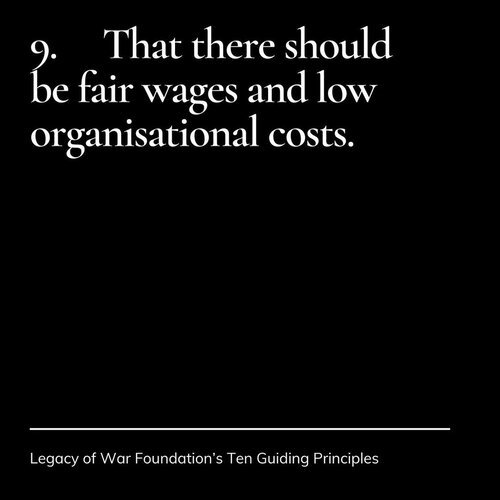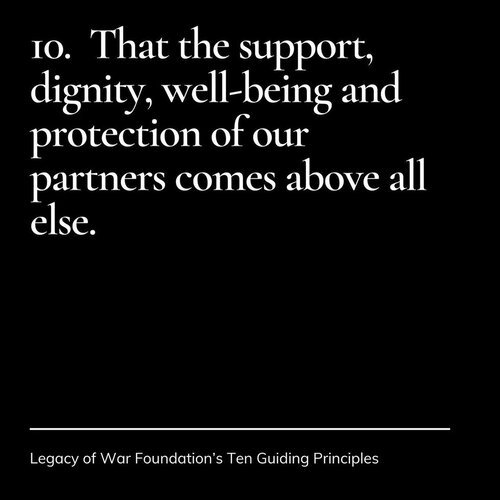We’re trying to do something other charities are not
“One of the exciting things about starting a charity is that we get to start it from scratch. A lot of charities’ models are dated now. Many were set up fifty years ago, and the world has changed a lot. We’re trying to do something other charities are not. We’re trying to support communities to support themselves. Education and training and healing are paramount for us, because they’re long-term processes. They enable people to continue after we’ve left.”
We set up Legacy of War Foundation because we wanted to do things differently, to challenge the traditional neo-colonial concepts in the aid sector, and design a model that was beneficiary-led and localised.
Together with our incredible trustees, team, patrons and partners, we have arrived at ten guiding principles that will shape our work.
-
Too many non-profits talk about collaborative work, while failing to actualize this work. Because we are a small charity with direct and personal connections to organisations on the ground, and because we deliver services that are concrete and tangible, we are committed to collaborations that begin on the ground.
Our projects are dedicated to community participation— ideally, that begin from the very communities we support and effectively give back to those communities. Collaboration also means building a global network of volunteers and participants— who give their time, energy, support, and funding— to the partnerships we’re supporting, so that collaboration creatively extends across global networks. First and foremost, we are committed to a form of collaboration that begins with careful listening and thoughtful dialogue, so that our collaborations are strong, supportive, and ethical.
We also work alongside local civil society partners and volunteer groups to implement projects. The 2016 Grand Bargain, which intends to improve the efficiency and efficacy of humanitarian aid, suggested a commitment from international NGOs of directing at least 25% of their funds to local partners. In 2022, 26% of our expenditure was allocated as grants to our local partners.
Working this way helps us to avoid mirroring the power dynamics so often seen within Western non-profits working in foreign countries.
-
Giles Duley, our CEO and founder, has worked in the field, photographing for and with humanitarian organisations, for over ten years. This work has connected him to NGOs and initiatives working on the ground to empower and provide resources, training, and education for communities living in the aftermath of conflict. It has also given him a great deal of experience with non-profit organisations— experience that has allowed him to see what doesn’t and what does work on the ground. All of our partnerships are carefully and methodically researched (both on paper and in person); they represent connections we have intentionally made to ensure solid, ethical collaborations with organisations that truly do what they say they are doing.
-
Transparency is one of the core tenets of the Legacy of War Foundation. Our team has worked with a variety of non-profits in the past. Through those experiences we have learned a great deal about transparency.
We believe in fair wages and organisational parity. All our staff and contractors are currently paid at the UK median salary, calculated in reference to the ONS Weekly Earnings Report. In 2022/3, this equates to full-time equivalent salary of £31772.
We utilise digital tools to check in frequently with our projects, and employ regular reporting to record individual and organisational progress. In 2022, we will be building a platform to make reports accessible to donors and volunteers, in order to create a community of co-collaborators working together openly to support communities affected by conflict. In the meantime, you can always find out more about our financial reporting through our Charity Commission profile.
-
Accountability is fundamental to the Legacy of War Foundation. That means, we are also holding our volunteers and community members accountable. We want to hear from you— your thoughts, experiences, and suggestions. All of this feedback will be completely transparent, so that we can work together to build a dynamic organisation aimed at giving the most that it can to the communities it might serve. Likewise, we are committed to sharing feedback and testimonials from the organisations we work with— from people on the ground— so that we can also learn from their experiences working with us. Mistakes are inevitable. Challenges are inevitable. But positive growth is also inevitable. And we’d like to include you in our mission to build a foundation with ethics and values we can all learn from and admire.
“ Power is both the greatest resource and greatest impediment to effective local humanitarian action: the power relations embedded in formal humanitarian structures must be confronted and transitioned to reflect new possibilities.
Our work shows that the barrier to greater local action is not a dearth of capacity, but instead the reluctance of international actors – donors, United Nations agencies and international non-governmental organisations – to cede power. The necessary shifts in the system will require effort and will take a generation to embed, but they are long overdue.
”



